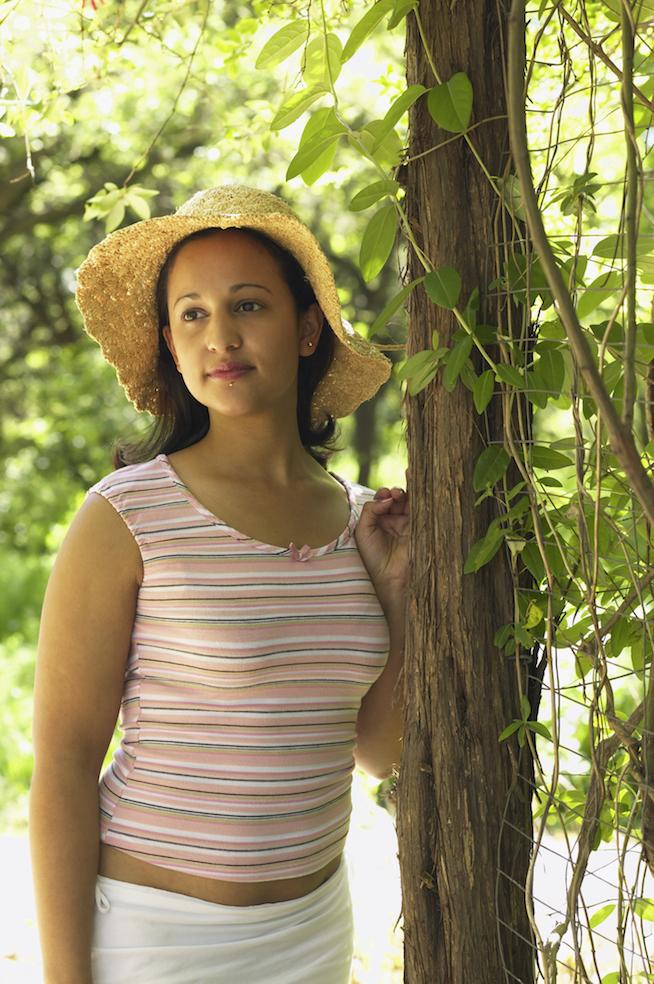
What good does this material freedom do for me when it comes at the price of the oppression of those around me?
"If it weren't for [white] feminism, you wouldn't be where you are today."
I have heard this very line countless times from white feminists, which has almost exclusively been used as a rebuttal to people of color's claims that white feminism does harm in our lives. This line has always struck me as odd at best, and dangerous at worst.
After all, thanking white feminism for any improvement in the lives of people of color is like thanking patriarchy for white women's right to vote.
Given white feminists' continuous attempts at erasing, silencing, and co-opting people of color and their struggles, I can assure you that the gains people of color, and particularly women of color, have achieved up to today have been made in spite of white feminism, not because of it.
To be clear, when I use the term "white feminists," I am referring specifically to people who subscribe to the form of feminism that only looks at and answers the needs of white women (some people choose to stylize this as "White Feminism (TM)," however I do not). This form of feminism is useless to me.
While useless is a strong term, it is entirely fitting for a movement whose very foundation relies on preventing and stifling my community's liberation. White feminists have played just as much a role in maintaining the systems of oppression that operate in my community as any other group of people.
Nothing has made this clearer to me than the experiences I've had moving through the world as a racialized person who's read as a woman.
From the first time I went abroad to my current experience living alone in another country, my travels have taught me once and for all that white feminism holds no answers for me. Here are three reasons why.
1. Proponents of white feminism would rather leave people of color to suffer in silence than have to face the oppressive reality of the world they help maintain.
"They love foreigners — you'll be treated like a superstar. You have nothing to worry about."
That's the advice I received from the 110-year-old international organization that sent me on a year-long high school exchange program to Taiwan when I was 18 years old.
You can imagine my shock, then, when I spent my year being spit on on the street, dealing with my host mother calling me ugly and trying to get me to bleach my skin, and having a neighbor hand me her bag of trash without a word because she believed my brown skin meant my only purpose was serving her.
And I hope you can imagine my rage when upon telling the white liberals in charge of my exchange program about this anti-Blackness, I was told that none of the other (white) exchange students were having those problems and that whatever I was experiencing was somehow a result of my own doing.
These white liberals, many of whom were self-proclaimed feminists, had failed to prepare me for the realities of the world at large. They chose to blame me for the consequences and leave me, someone who was supposed to be in their care, in a very difficult, painful, and even at times abusive situation.
It was in this moment that I began to understand that white feminism not only didn't have my best intentions at heart, but that it could also play a part in my suffering.
2. No idea, theory, or praxis created solely in the image and interests of white women will ever serve the rest of us.
Two years later, I found myself in the halls of the library of the University of Ghana in Accra, where I stumbled upon a book that changed my understanding of gender as profoundly as Taiwan had changed my understanding of race.
That book was Gender Epistemologies in Africa: Gendering, Traditions, Spaces, Social Institutions, and Identities, compiled by Nigerian feminist Oyèrónkẹ́ Oyěwùmí.
Within the pages of this book, I found feminists from across the continent talking about gender in ways that at once felt familiar and completely blew my mind.
As a genderqueer Afro-Latinx college student, I had always felt uncomfortable and even pushed out of my college's queer community. More than that, even the concept of "genderqueer," as it was presented to me, was as boring, flat, and unuseful to me as other tenets of white feminism.
That all changed in Ghana, where I was suddenly reading research that talked about non-hierarchical practices of gender in Africa and theories about masculinity and femininity that allowed one to be both as well as neither.
Where before I could only find negation, dismissal, and erasure, I was now able to read feminist writers, thinkers, and performers who began their questioning of gender with a simultaneous questioning of colonialism, white supremacy, race, and historiography.
Whereas white feminism can only bring me boring incompleteness a la white women's 78¢, women of color's feminism brings with it the world and all the complexities and nuances that come along with it.
3. White feminists' ideas around choice come from a place of white dominance and, therefore, cannot bring me, or you, to freedom.
Right now I am living and working alone in one of the safest and most stable cities I have ever lived in and I currently have more economic, social, and political power than I have ever had in my life (thanks in no small part to my being a US American in Mexico with a well-paying job).
I am, technically speaking, in the best possible position to do whatever it is I want to. Which is, according to white feminism, the pinnacle of feminist freedom.
I know this because, if the independent online feminist scene is any indication, white feminists in the world seem to believe the great litmus test to determine whether or not we've achieved liberation is the degree to which individuals are allowed to choose to do anything and everything they want to.
Which is the whitest thing I have ever heard.
I can't help but think in response to these ideas: Of course white feminists' idea of freedom is being able to move through the world, however, wherever, and whenever they please (and usually with impunity).
In their minds, whether consciously or subconsciously, that's their great birthright — the grand legacy their forebears left before them and that has heretofore been denied to them (until white feminism stepped in to grant them access to it).
For the rest of us, however, freedom has meant something quite different. What good does this material freedom do for me when it comes at the price of the oppression of those around me?
And honestly, I believe that even freedom for white women looks different than what white feminism would have them believe. You can't come from a tradition filled with the riches and spoils of hundreds of years of domination, violation, enslavement, and genocide and expect the tenets of that legacy to set you free.
Because even when talking on the most basic level of topics such as shaving, slut-shaming, and makeup, more so than our personal ability or inability to make these decisions, it's the collective consequences of doing or not doing these things that is keeping us down.
When we begin with the reality of the collective rather than that of the individual, we realize that our freedom has much more to do with unraveling the forces of power and dominance that work to maintain the negative consequences of our actions rather than our ability to make them in the first place.
And it's women of color who we have to thank for that realization.








